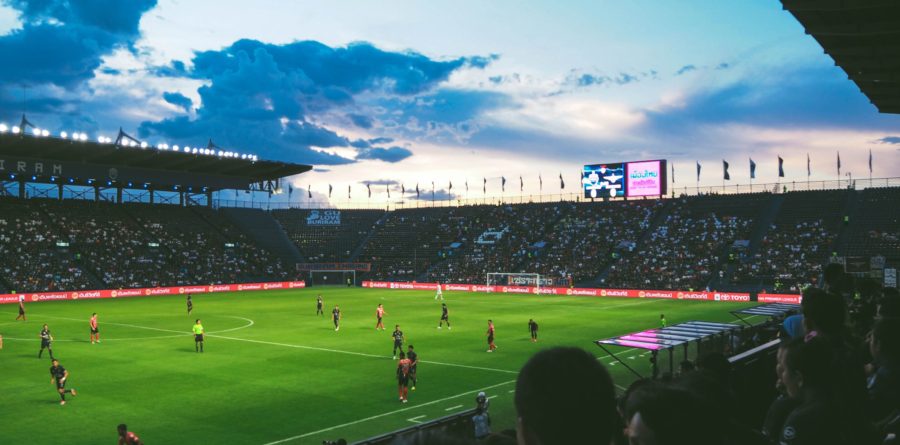How to manage the World Cup in the workplace
23/04/2018 - Totally-HR

Although major sporting events happen all year round it will come of no surprise that some will have a greater potential impact in the workplace – such as the upcoming World Cup.
Although the early England games do not directly clash with normal office hours, most of the football that is played during the tournament will. This may give rise to a number of work-related issues including increased sickness absence, competing requests for annual leave, excessive internet use and lower productivity. Prior to the event, Employers should circulate all relevant policies and ensure that Employees are treated fairly and consistently when any conduct issues arise.
During big events it is important for Employees to be aware of what is expected of them and for you as an Employer to be aware of the HR risks posed by large sporting events.
Whilst rooting for the Three Lions over in Russia, here are some simple steps to consider during the excitement of the World Cup:-
- Consider the implications for Holiday Requests
You could consider posting the dates of the matches and explain that holiday requests are on a “first come; first served” basis as there is likely to be a large number of competing requests for time off. Not all holiday requested has to be accepted and can be turned down if there is a business need.
- Monitoring Sick Leave
With the combination of matches and alcohol related absences likely to increase during this period Employers should keep a close eye on sickness taken during major sporting events, and keep on top of return to work certification and interviews. Even if you are not a fan of the sport it is worthwhile to monitor fixtures to spot trends and take the relevant action. To help minimise absenteeism it is worth considering re-circulating your company’s sickness policy with emphasis on the consequences of unauthorised sick leave in connection with sporting fixtures. It may also be worthwhile explaining the impact that sickness has on the rest of the team.
- Avoid Discrimination
During sports events such as football you should not assume that female employees will be less interested in watching matches and should ensure that you are not prioritising holiday requests for male Employees. At the same time you should try to ensure that Employees who are not interested in the sporting event are not disadvantaged. Employers also need to be aware of issues arising from team rivalry such as harassment by intimidating or offensive behaviour and comments. You should remind Employees that any comments amounting to harassment or discrimination shall be dealt with as a disciplinary matter.
- Minimise issues relating to Mis-Conduct and Unauthorised Absences
Due to the days and times of the initial matches there is no clash with normal office hours during the first stages of the World Cup 2018. There could however be an impact the following day with Employees staying out late and consuming alcohol resulting in employees potentially turning up late or not all. A gentle reminder to Employees of their duties and conduct expectations should limit the instances of lateness or unauthorised absences – minimising the risk of disciplinary action.
- Consider Alcohol Related Health & Safety Issues
Some Employees may partake in alcohol during the fixtures in the evening, so Employers should be mindful of the Health & Safety risk arising from Employees still being under the influence of alcohol during work hours the following day. A review of flexitime on days following matches could be considered or encouraging those planning to watch the game to consider taking annual leave the following day to avoid disciplinary action.
- Special Allowances for Big Games
For big games later on in the tournament Employers may want to consider allowing a TV or radio in the workplace. As most games can now be streamed it may be worth considering a review of the company’s social media policies and a reminder to staff of the existing social media and internet usage policies. Employers that provide Employees with access to a television in the workplace should consider offering a different perk for those staff who do not wish to watch the event, and may otherwise feel disadvantaged.
- Behaviour Outside of Work
Some sporting events, such as football, have more of a history of resulting in public disorder than others. If an employee is involved in criminal behaviour outside of work, such as being drunk and disorderly or hooliganism, the employer should consider whether or not disciplinary action is appropriate in the circumstances. It will not necessarily be fair to discipline or dismiss an employee because he or she is charged with, or convicted of, a criminal offence committed outside of work. The employer should consider whether or not the offence has any connection with his or her work, for example if it affects the trust that the employer has in them or the affects the company reputation.
Employers should consider whether to take a “business as usual” approach and make clear that any breach of normal rules will be dealt with as a disciplinary issue, or to accept that there is likely to be some disruption, introduce some flexibility to allow employees to follow the events, and focus on avoiding serious misconduct. Many employees will place great importance on the ability to follow major sporting events, and enabling them to do so can be an effective way of increasing employee morale.
As an Employer you could consider having a specific Policy relating to major sporting events acting a reminder to Employees of their obligations, or could produce a memo, email or intranet announcement.
Being clear on the rules and HR procedures during major sporting events can ensure that everyone enjoys the event. However, where there are issues arising which do result in disciplinary action Employers should ensure fair procedures are followed to mitigate later repercussions.
If you would like any further advice or assistance with your HR Policies relating to major sporting events or have any issues arising from mis-conduct as a result please contact Totally HR.
The World Cup is running from Thursday 14 June to Sunday 15 July 2018. England’s opening game takes place against Tunisia on Monday 18 June (7pm). England will then play Panama on Sunday 24 June (1pm) and Belgium on Thursday 28 June (7pm).
All articles on this news site are submitted by registered contributors of SuffolkWire. Find out how to subscribe and submit your stories here »



